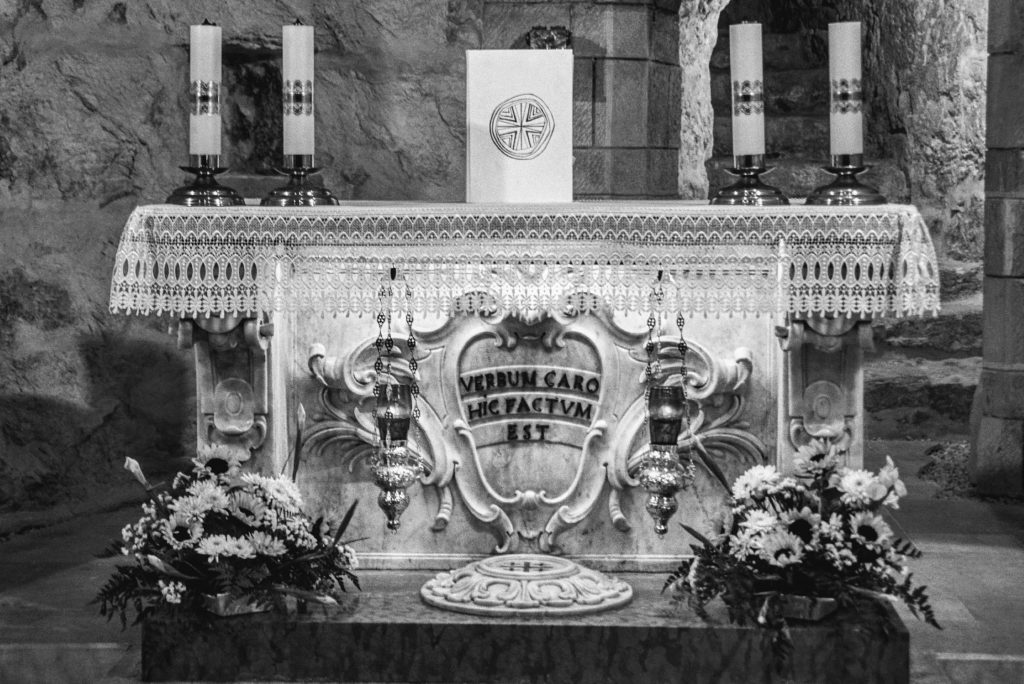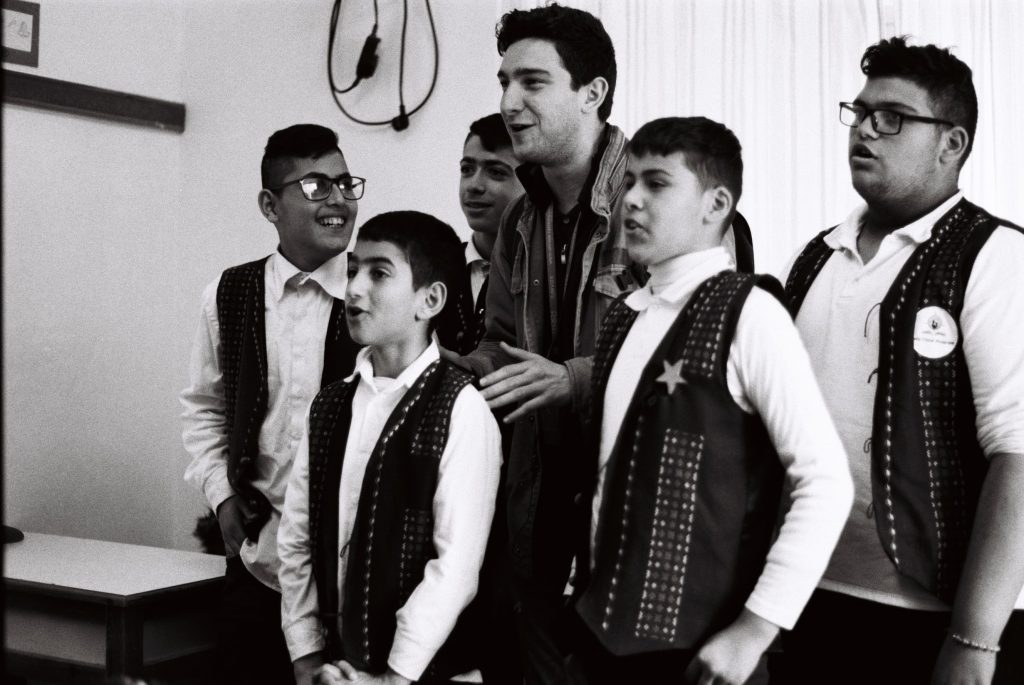As we move through the octave of Christmas and inch closer to a new year, I find myself looking over the past 12 months with bewilderment. Who could have predicted last December what this year would bring?
Christmas is a period of great rejoicing and hope, but this year seems to be shrouded in uncertainty, anxiety, and at best, muted joy. Can we really believe that things will get better? Can we dare to hope that the tide could be changing and our situation improving? We are hesitant to hope. And it seems we are right to do so.
In so many aspects of our lives there are lingering doubts, complications, and obstacles. Travel is impeded, families are separated within the same town, newly empty chairs sit at dinner tables as family members have been lost over the past year—often times without the consolation of being able to grieve properly. Can we really hope in hope itself? Can we dare, looking to the new year, to be optimistic and joyful?
The “fleshification” and salvation of our God

What has come to my mind repeatedly in the days since Christmas are the words of the Gospel of John, proclaimed at the mass of Christmas Day: “and the Word became flesh and made his dwelling among us” (Jn. 1:14). And along with these words, the words of the first reading from Isaiah: “all the ends of the earth will behold the salvation of our God” (Is. 52:10).
There is a profound message here in the words “flesh” and “salvation”. We have heard these passages so often that it becomes difficult to truly comprehend them. However the lesson of “the flesh” is incredibly needed, this year more than ever. When we celebrate the incarnation at Christmas, what we are really celebrating is God’s “fleshification” (loose translation of the Latin, incarnatio). God takes on our limited, finite, impoverished flesh, becoming one with us, one like us.
Because of this he knows what we suffer—not in some abstract way, but as the scripture reminds us, as “flesh”, incarnate, embodied like us. He remains with us; he chooses to make his dwelling among us, and continues to dwell within us in our flesh. It isn’t indifferent to God when your spouse loses their job, when your family member gets a bad diagnosis, or when you suffer anxiety or fear. These experiences of being human are precisely what we celebrate in Christmas—that God takes on flesh, knows our humanity, and redeems and glorifies it. This is the time we celebrate God’s knowing the flesh!
The last year has certainly been a period of painful awareness of our finitude and fleshiness. That’s why we need to be reminded of the fact that we are known and that our struggles are known. With this knowing we also receive a promise: all nations, all flesh shall see the salvation of our God. Christmas isn’t a promise of some future, far-off redemption. God doesn’t kick the can down the road. “Sure, you’ll be miserable here on earth, but someday! Someday maybe you’ll have a modicum of happiness, you’ll die, and then your burdens will be lifted and you’ll be joyful”. No. Our flesh, too, is transformed here and now. Our very existence with its sufferings and struggles is transformed. Bethlehem is the promise of hope that even amidst our trials today, our experience of fleshiness, we can have redemption and rejoicing.
We can hope to hope

At the beginning of this year ( a pre-Covid world which seems like a lifetime ago), I had the opportunity to lead a pilgrimage to the Holy Land. While visiting the region of Bethlehem, our group made an out-of-the-way stop at the Holy Child Program, a program for children who suffer from untreated complex mental health issues and exposure to intergenerational trauma. In spite of the trials these children have faced from a very young age—many of them have seen and suffered violence, loss of parents and systematic neglect—they radiated an astounding simplicity, joy, hope, and healing. It was an encounter, in Bethlehem where it all began, of both “flesh” and “salvation”. In the concrete and broken realities of these children’s lives, God was made present and incarnate, and the fruit of this was joy and healing. This is possible for us too. God comes to us in the concrete, in the here and now. He becomes flesh, dwells among us, redeems our humanity so that here and now we can rejoice.
So yes, we can hope to hope. There is a reason to rejoice. As we approach 2021, we have more cause than ever to trust that things can be better. For God is made flesh, and he dwells among us. Here’s to greater hope and joy as we embrace our flesh and finitude this coming year.


